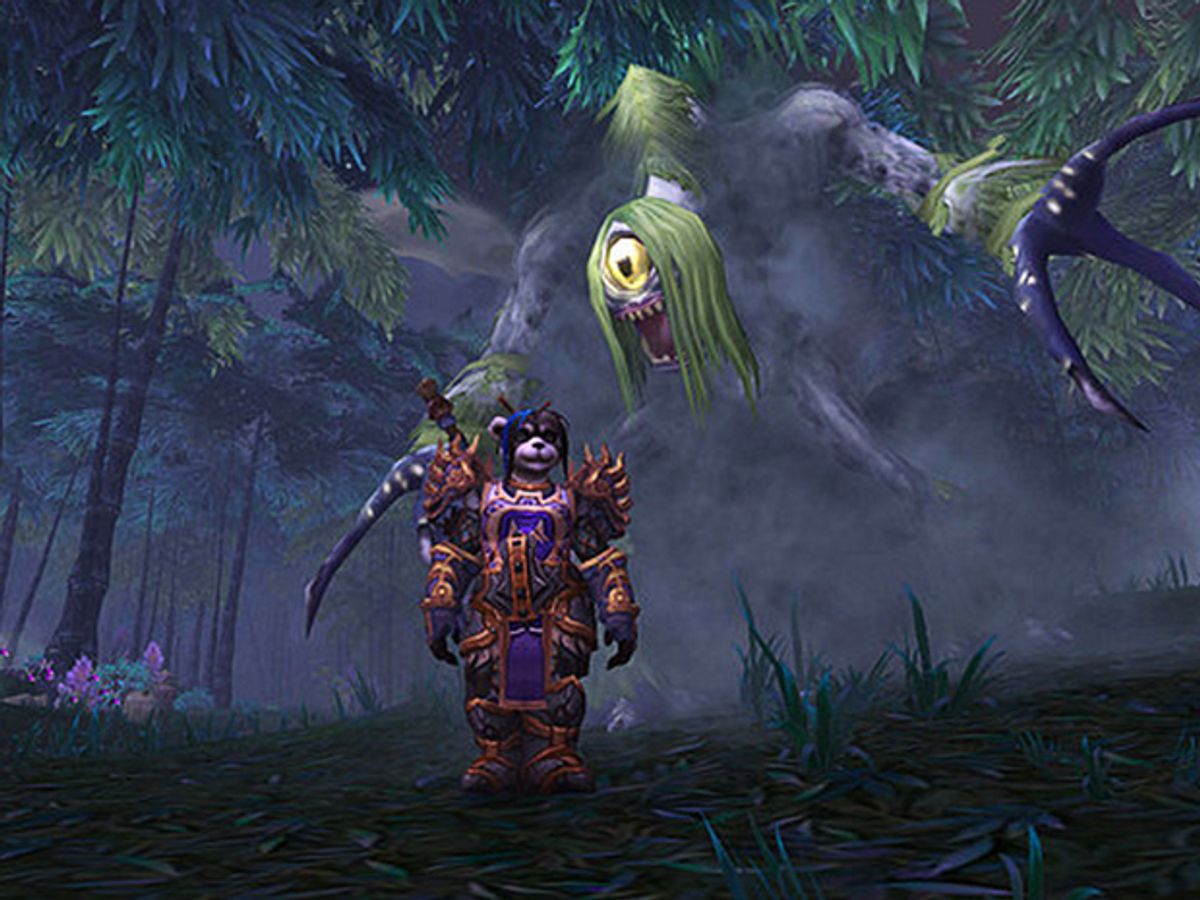“Tracking terrorists” may represent the best official excuse ever concocted for U.S. and British spies to play online games at work. But it remains unclear whether such cyber-sleuthing efforts have paid off, according to new revelations from the Snowden documents.
The Guardian, New York Times and ProPublica jointly reported on a U.S. National Security Agency document written in 2008 and titled "Exploiting Terrorist Use of Games & Virtual Environments." The document revealed the NSA's strong interest in extending surveillance of potential terrorists and other intelligence targets to World of Warcraft, Second Life and Microsoft's Xbox Live service—online gaming spaces already being infiltrated by FBI, CIA, and Pentagon spies back in 2008.
Unsurprisingly, U.S. and U.K. spy agencies found that even terrorists and militant group members like to play popular online games. The Guardianreports:
"Al-Qaida terrorist target selectors and … have been found associated with Xbox Live, Second Life, World of Warcraft, and other GVEs [games and virtual environments]," the document notes. "Other targets include Chinese hackers, an Iranian nuclear scientist, Hizballah, and Hamas members."
Second Life had so many FBI, CIA, and Pentagon spies roaming around in 2008 that the NSA proposed a joint advisory group to avoid any possible overlap or conflict between the various efforts. GCHQ, the British spy agency counterpart to the NSA, claimed the biggest success by helping British police shut down a crime ring that sold stolen credit card information in online games such as Second Life. The NSA document also described hopes of using intelligence targets' in-game communications to piece together a more complete picture of their social networks.
The 2008 document may serve best as a glimpse of the intelligence community's fascination with the popular online games of the time. In 2008, Wired reported on a Pentagon researcher's imagined scenario of terrorists in World of Warcraft plotting to blow up the White House by communicating through cryptic code words, as well as how the U.S. Congress freaked out over the debunked possibility of money laundering in Second Life.
But the lone GCHQ victory in Second Life stood out as the only notable success in all the cyber-sleuthing efforts, according to the available documents. The NSA and its fellow spy networks did not even find concrete evidence that terrorists or other persons of interest were carrying out nefarious activities in online games.
Online games don't necessarily offer a significant advantage for terrorists or other people trying to meet and plot in secret—especially with so many other forms of online communication available.
"For terror groups looking to keep their communications secret, there are far more effective and easier ways to do so than putting on a troll avatar," said Peter Singer, a senior fellow at the Brookings Institution and author of Cybersecurity and Cyberwar: What Everyone Needs to Know, in an interview with the New York Times.
Still, a lack of success may not have deterred additional surveillance efforts in online gaming worlds. The 2008 NSA document hinted at an expansion of surveillance in online games rather than suggesting any cutbacks. Recent revelations about the NSA's broad surveillance over Internet communications and cellphone locations also depict the NSA as being interested in vacuuming up more data, not less.
"In terms of the broader context, I think this captures the 'Collect it all' spirit of NSA and GCHQ," said Justin Elliott, a reporter at ProPublica, in an online reader chat session. "Large numbers of people started to migrate to these online games, so the agencies went there too."
If anything, the NSA and its counterparts may have only shifted their surveillance efforts in terms of which online games have become more popular in recent years. Second Life never caught on as a mainstream game despite serving as a poster boy of sorts for massively-multiplayer online games, and World of Warcraft has seen its number of players slip from a height of 12 million to about 7.7 million players.
Microsoft and Second Life's Linden Labs declined to comment on the latest revelations of NSA interest in their online gaming services and games. But World of Warcraft's Blizzard Entertainment denied having cooperated with any spy agencies in surveillance efforts on their players. Whether that explanation will satisfy World of Warcraft players remains to be seen.
Image: Blizzard Entertainment
Jeremy Hsu has been working as a science and technology journalist in New York City since 2008. He has written on subjects as diverse as supercomputing and wearable electronics for IEEE Spectrum. When he’s not trying to wrap his head around the latest quantum computing news for Spectrum, he also contributes to a variety of publications such as Scientific American, Discover, Popular Science, and others. He is a graduate of New York University’s Science, Health & Environmental Reporting Program.



